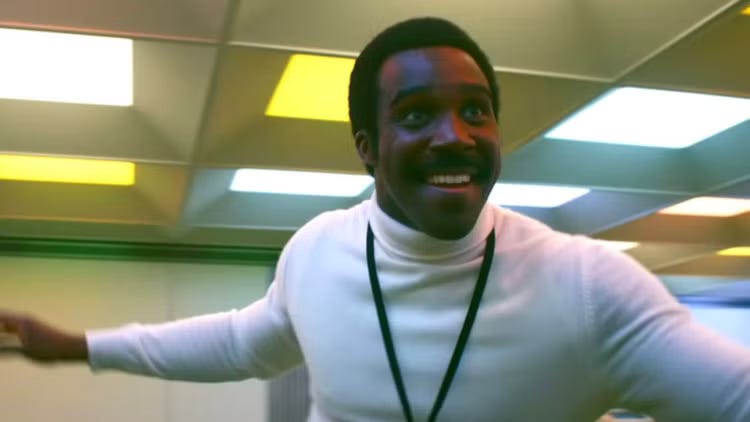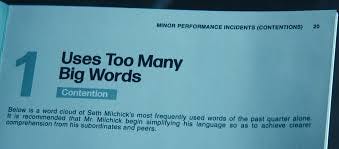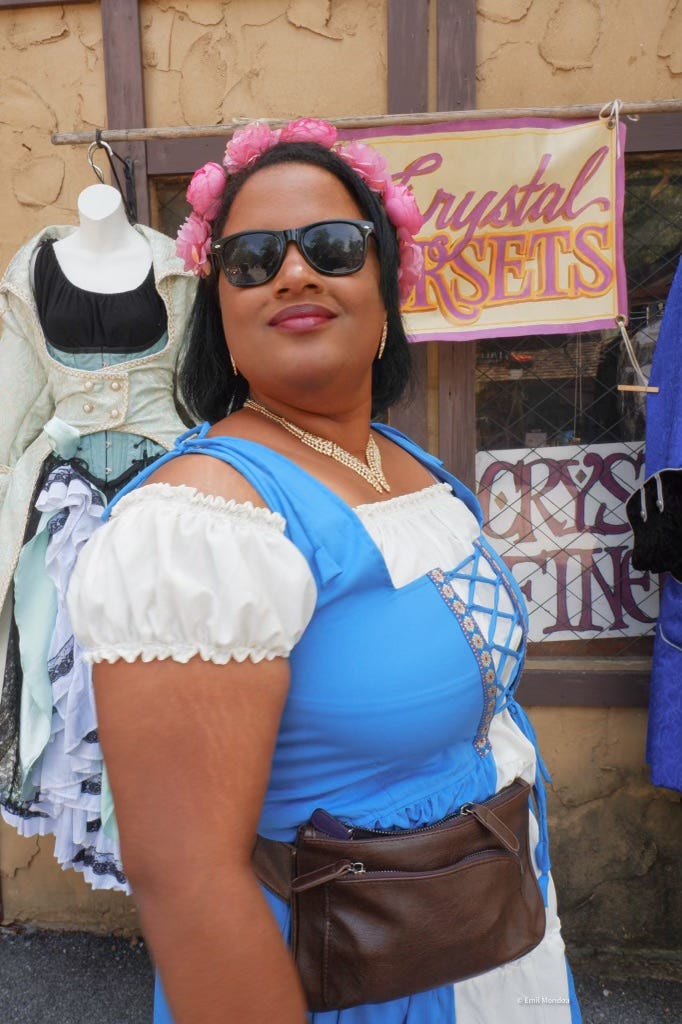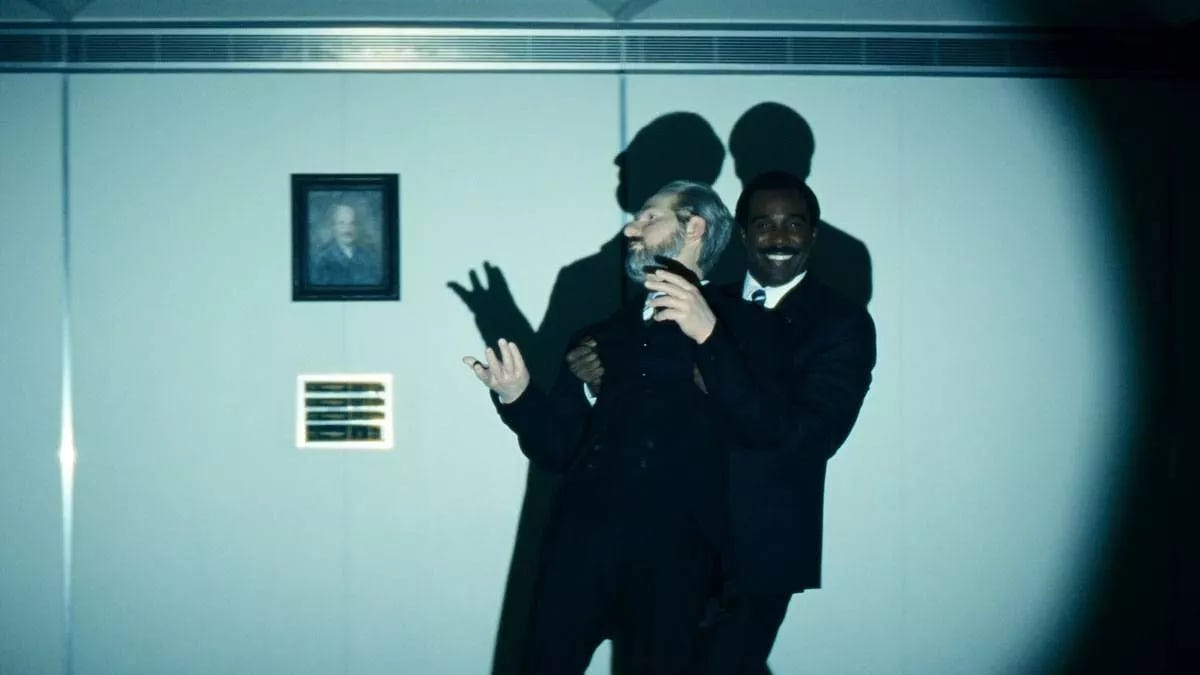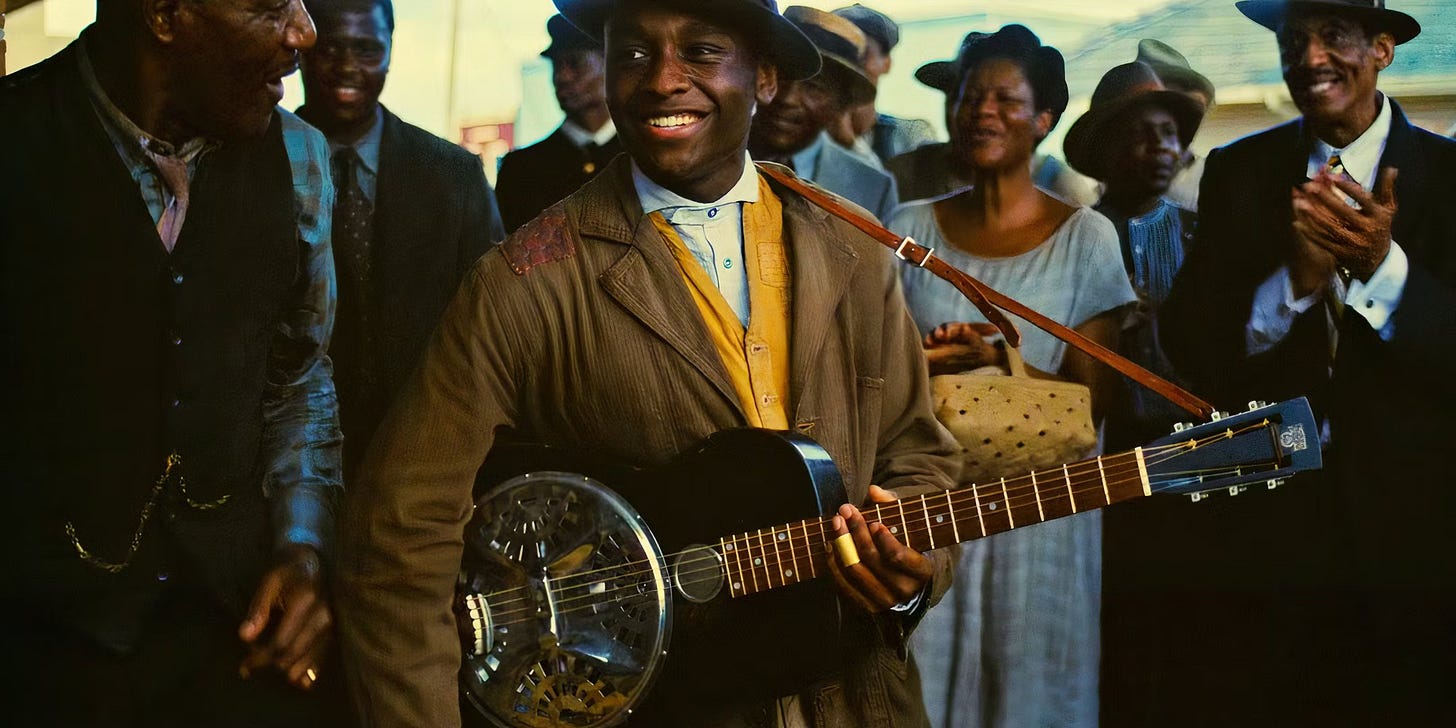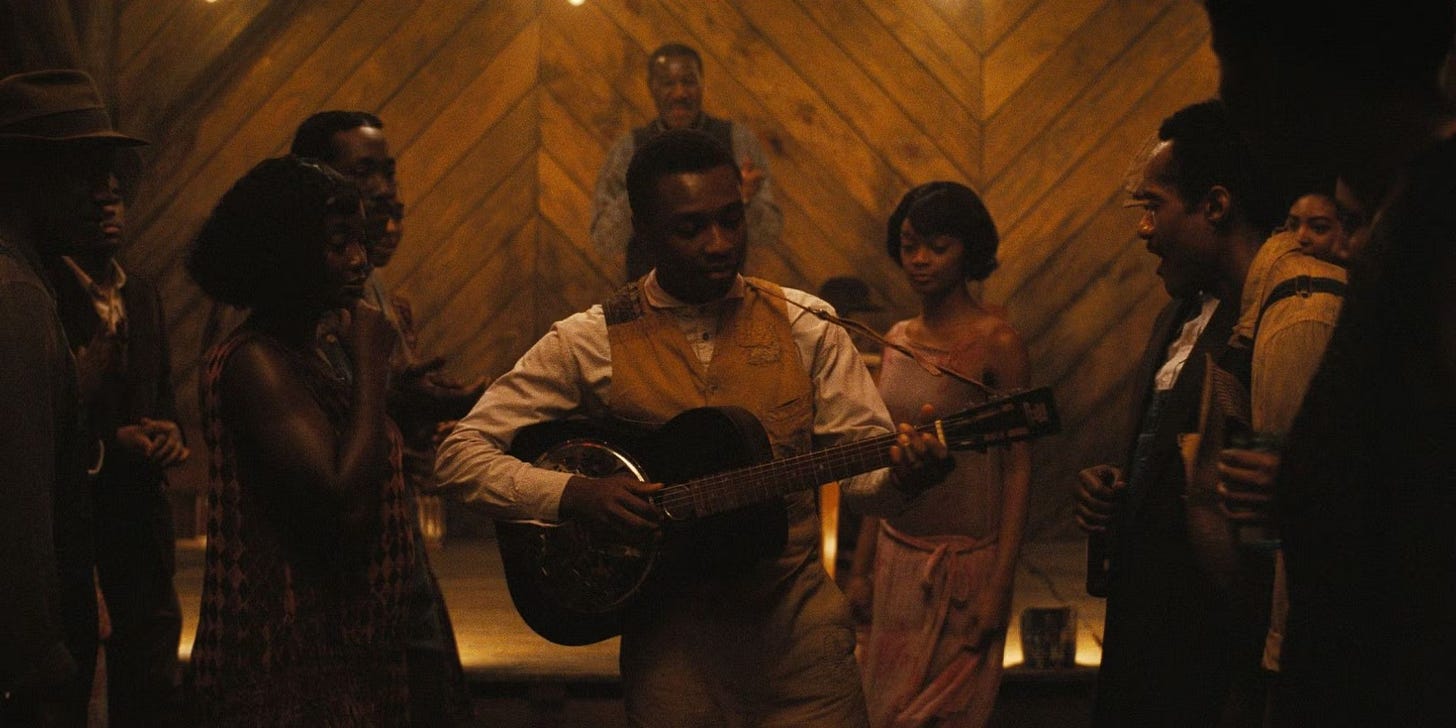The importance of "big" words
AKA - how Sinners and season 2 of Severance encouraged me to raise my voice
`2025 seems to be the year of voice healing. I feel like I’ve been encouraged to raise my voice more between my current phase in life, the sound baths, and the delicious art I’ve been watching recently. I’m still reeling about some elements of the second season of Apple TV’s Severance: a show that’s been part of many conversations with a coworker. Last week, I watched Ryan Coogler’s original movie Sinners in an IMAX theater. Both of these stories have been pivotal in how I’ve jumped back onto the public writing bandwagon.
(Some theories and mild spoilers for Severance season 2 and the film Sinners. I’ve done my best to keep it mild - especially for the latter - so you should still be able to watch it)
There were two characters that I connected with deeply in the media sphere I occupy in the Galaxy: for those who know me planetside, one would be pretty obvious and the other rather surprising (it certainly was for me!). They have been such a big part of my transformation into the artist I’m trying to be now. But in order to tap into the creativity that is brewing within me, I have to look at where I came from and where I want to go.
The first character I resonated with was someone who would be considered a lackey to the organization he’s under. It would be easy to call him that in the first season. But the second season brought in a complexity that I appreciate. Note that this isn’t a complete endorsement of his actions - some of the stuff he’s done is too much even for me. But the things that he has endured hit home with my experience.
Ladies, gents, and non-binary friends - I give you: Seth Milchick.
Milchick is a loyal employee of Lumon Industries. In his first appearance, he is the assistant to Harmony Cobel. He gets promoted to her position in the second season and from the jump, he is trying to create more humane work conditions for the severed employees. There are hints of humane reforms from season 1, especially with the way he looked upon Mark and Petey’s office friendship. But he still participates in some of the cruelest tasks Lumon asks of him without question - from the Lexington Letter to Helly’s time in the break room… until season 2.
When Milchick gets promoted to Cobel’s position, the cracks begin to show from day one. Not only is his old position filled in by a young intern, he also gets much more resistance in big and small ways. Part of it is due to the severed employees’ increased knowledge of the outside world. But the bigger part is due to a company culture that doesn’t see his reforms or even Milchick himself as a valid authority. From the “gifted” portraits to the performance review, Milchick’s humanity is cut down from every corner. What wouldn’t be a second glance with Cobel is questioned with Milchick. Any sense of support Cobel managed with Lumon is practically nowhere to be found with Milchick even in the places you’d expect to see even a smidge of solidarity (Natalie, anyone?). Outside of the founding family, all Lumon sees of everyone else is pawns and mouthpieces. Even with Milchick’s best loyalty, he gets the worst aspects in all angles.
When it got to the staff evaluation scene, it got to an experience that I’m all too familiar with: praised for good character and moral standing but nitpicked on things that would be one-off and so minor on the grand scheme of things. You may have noticed this already from my Substack debut - my emphasis on words. I’m very much with the Ancients on how words have power: yes even the academic and “big” ones. When I started attending a Catholic prep school at 12, my parents were called into the office for me using “big” words. If you’ve seen my profile pic - and here’s another one in this post should the point be lost, you can imagine how hypocritical it sounds when the same so-called “big” words were going to be required from me in higher stages of education.
I understand the call for simplicity - that was also demanded of me even when I went for my master’s degree. But for those who naturally want to credit the source, who use “big” words and who manage to use them correctly and in a way that would be easy to understand, isn't there a space for us too that’s not limited to the academic ivory tower?
What I am hopeful about Milchick is slowly he is realizing how his environment is doing more harm than good - not just to the severed employees but to him as well. While still misguided in working for Lumon, he is fighting back in his own ways and he did it first by the very thing that they critiqued him on (and they still continue to!) : his words. I hope he finds more of his own ways to rebel. Then again, it’s Severance. Maybe they’ll find another way to shock me.
Now the second character - combined with a pretty amazing sound bath - was the one that pushed me to the edge and helped me dive back into the writing sphere. There are things that I’m still unpacking from this movie that are going to need several more watches to comprehend and even with that, I don’t expect to completely figure it out. (It took me almost a week to figure out one element. For the sake of it being a new movie, I’m going to try to make the details as mild as possible so for those who have seen it, you could probably guess the one part I’m referring to.) Interestingly, it wasn’t any of the main female characters in the roster - as amazing and revolutionary as they all are. For me…
It was Sammie Moore - aka Preacher Boy.
The opening of the film alone is pretty powerful. Here’s a rough recall of the opening lines at least until I come back to this story with more details. (Huge thanks to Forever Dreaming for the rough transcript):
There are legends of people born with the gift of making music so true, it can pierce the veil between life and death, conjuring spirits from the past and the future. In ancient Ireland, they were call the fili. In Choctaw land, they called them fire keepers. And in West Africa, they’re called griots. This gift can bring healing to their communities, but it also attracts evil.
It’s pretty clear that Sammie has that gift too. But with the time and place he’s in - a Prohibition-era Mississippi - we’d probably hear admonishments all too familiar to us aspiring artists and third culture kids. “It’s not sustainable.” “It’s the devil’s music.” “The industry will take away your soul.” “You’re talented but you can put it towards something else.”
In any other Hollywood movie, it’s pretty easy to see how this story pans out. But Sinners took it to a different direction: one even somebody as media savvy as myself couldn’t see coming. And that shift in spiritual direction - as Ryan Coogler has put it in his interview with the Atlantic - is why I decided to pick the keyboard back up again and share my stories. Those titles - fili, fire keepers, and griot - also are used when referring to storytellers.The freedom to express one’s soul is inherent, natural, and important. Sinners and Severance demonstrate the consequences of when that is hindered, be in well-meaning or unnecessary rules. And so this is my wish with this page - to continue sharing the stories and insights I have and to encourage others to do the same.
Note: I will come back with a more thorough breakdown of Sammie in Sinners in a few months. Sorry for the second of half of this article being so scant but I really encourage all of you to see this movie in theaters or on demand when you have the chance. So in the meantime, consider the few paragraphs I’ve delivered here an appetizer.
For now, I’ll say: thank you to Ryan Coogler, Dan Erickson, and the teams and studios that managed to bring these stories to life. Because you gave yourselves the chance to bring these visions to life, it has allowed me to give myself one too. Let me be clear, it’s not a requirement to have external permission. But it certainly makes it a lot easier.

